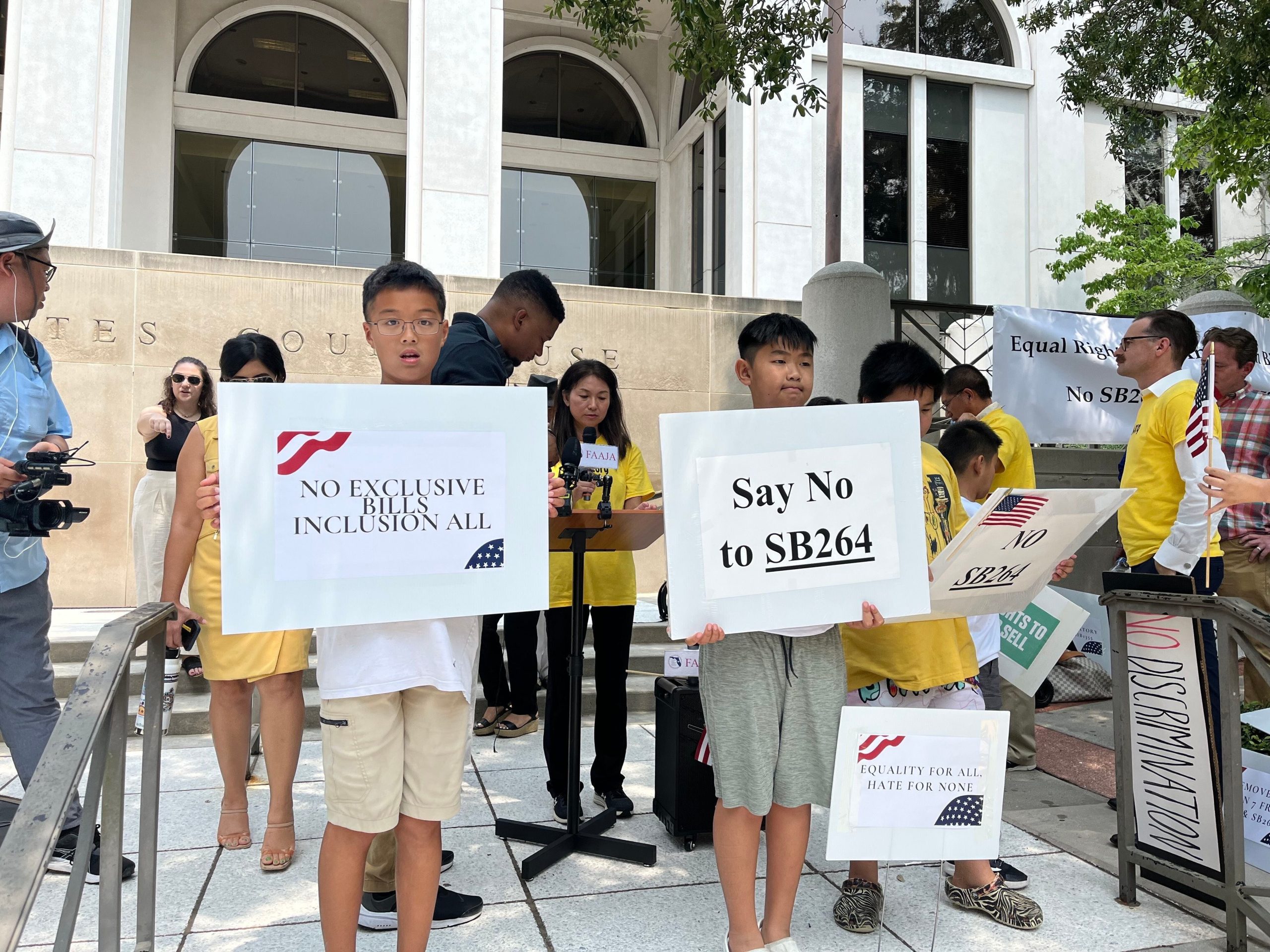In a significant legal development, a federal appeals court in Atlanta has intervened to block the enforcement of a contentious Florida law that sought to restrict Chinese citizens from acquiring land within the state.
The ruling emerged from the 11th Circuit Court of Appeals and is particularly noteworthy as it prevented the law’s application against two individuals who had filed a lawsuit against the state.
The court found that the plaintiffs, Chinese immigrants represented by the American Civil Liberties Union (ACLU), demonstrated a substantial likelihood of success in challenging the 2023 state law.

Florida Law Banning Chinese Land Ownership (Credits: Tampa Bay Times)
Nancy Abudu, one of the judges on the appeals court, emphasized the law’s blatant violation of protections against discrimination, asserting that Florida officials’ anti-Chinese statements established it as a blanket ban against Chinese non-citizens purchasing land in the state.
While the court did not entirely strike down the law, it granted an injunction for two specific plaintiffs who expressed concerns about having to cancel property purchase contracts due to the legislation.
The law, championed by Florida Governor Ron DeSantis, drew attention and criticism for its discriminatory nature. DeSantis, who signed the bill into law in May 2023, vocally opposed the Biden administration’s alignment with the plaintiffs in the case.
He tweeted in July, accusing the Biden administration of siding with Communist China while he stood with the American people.
Julia Friedland, the governor’s deputy press secretary, expressed disagreement with the court’s decision to grant an injunction for the two plaintiffs. Friedland reaffirmed the state’s confidence in the legal position of the law on its merits and pledged to continue resisting foreign malign influence in Florida.
The ACLU, which represented the Chinese immigrant plaintiffs, lauded the court’s decision, asserting that Florida’s discriminatory housing law is unconstitutional. Ashley Gorski, a senior staff attorney at the ACLU, remarked on the relief the court’s decision brought to the clients and pledged to continue the fight against the law’s broader enforcement.
The law specifically targeted Chinese citizens domiciled in China and not lawful U.S. residents, imposing restrictions on buying or owning more than a single parcel of two acres, with additional limitations on land proximity to military installations. Similar measures were considered in several other states, including Texas and Louisiana.
Florida’s law, supported by Republican Agriculture Commissioner Wilton Simpson, also extended restrictions on agricultural land ownership for individuals from China and six other countries considered hostile, including Iran and Cuba.
The state’s agriculture department, which held a workshop on a proposed rule to enforce the law this week, did not immediately respond to requests for comment. In June, the U.S. Department of Justice filed a statement of interest, contending that the law violated federal law and the U.S. Constitution, causing harm based on national origin and undermining civil rights.
This legal battle has seen various court decisions, including one in August by U.S. District Judge Allen Winsor, appointed by former President Donald Trump. Winsor ruled that those challenging the law had not demonstrated intentional discrimination by the Republican-controlled Legislature when passing the restrictions.
Bethany Li, legal director of the Asian American Legal Defense and Education Fund, part of the legal representation for the plaintiffs, emphasized the state law’s clear violation of the equal protection clause of the U.S. Constitution.
Li urged the ruling to serve as a warning to other states considering similar legislation, cautioning against the enactment of racist bills rooted in a historical era when Asians were ineligible for citizenship and were unjustly deemed as not belonging.
She stressed the importance of making legislative progress that protects all communities and avoids reverting to antiquated laws from over a century ago.
























